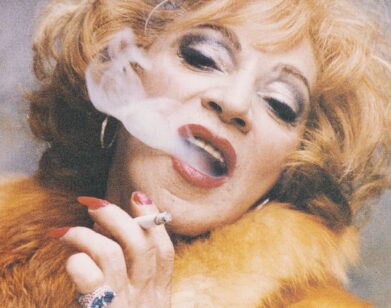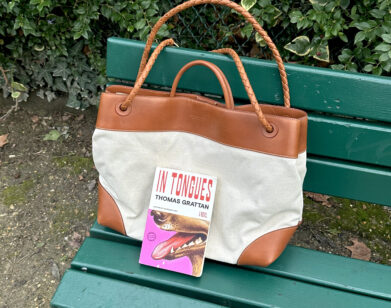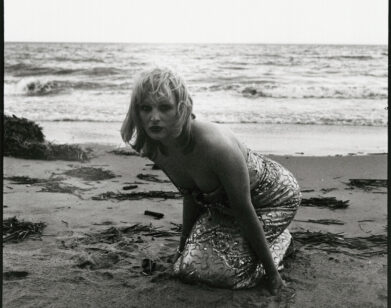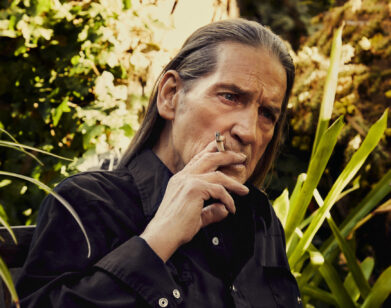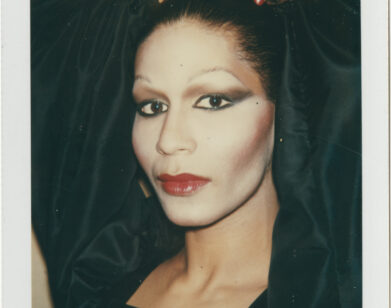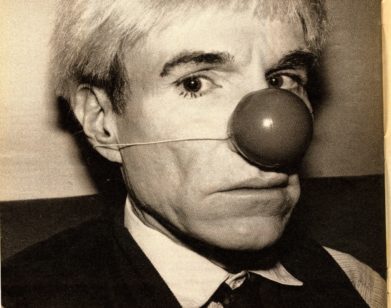SUPERSTAR
Remembering Jackie Curtis, the Superstar Who Brought Drag to Off-Off Broadway
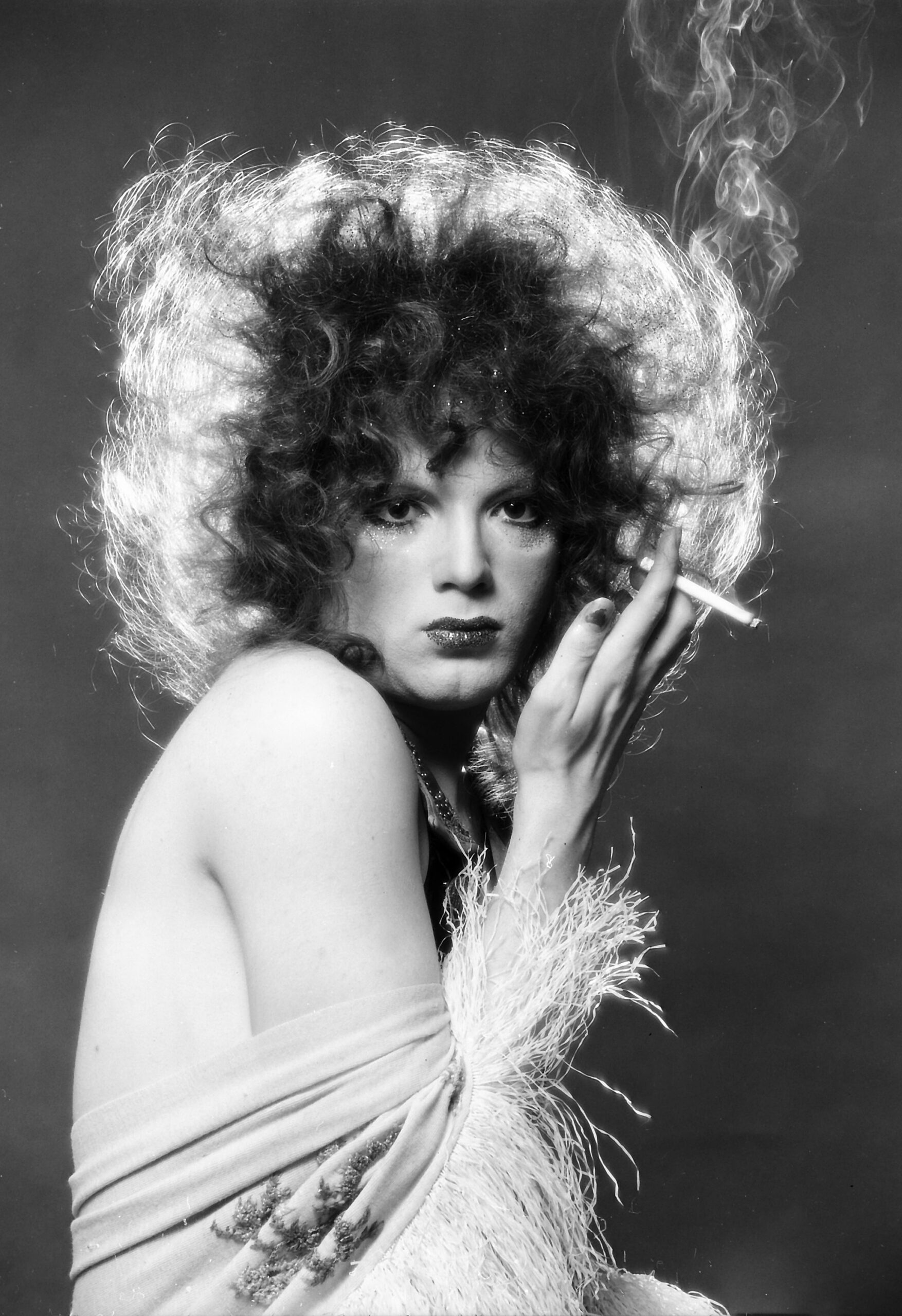
Jackie Curtis, 1970. © Jack Mitchell
An homage to the master of camp and the controversial play that defined her work.
———
Jackie Curtis, the playwright and drag performer best known for her outlandish roles in Warhol films including Flesh and Women in Revolt, wasn’t just a Superstar. Raised in the East Village, where her grandmother ran a notorious dive bar, Jackie grew up in the spotlight, scoring her first off-Broadway role in 1965 at just 17 years old. While her gender-bending looks drew attention downtown, it was the scripts she wrote, rewrote, and eventually tossed out in favor of zany onstage improvisations that ultimately earned her a reputation in New York’s queer underground.
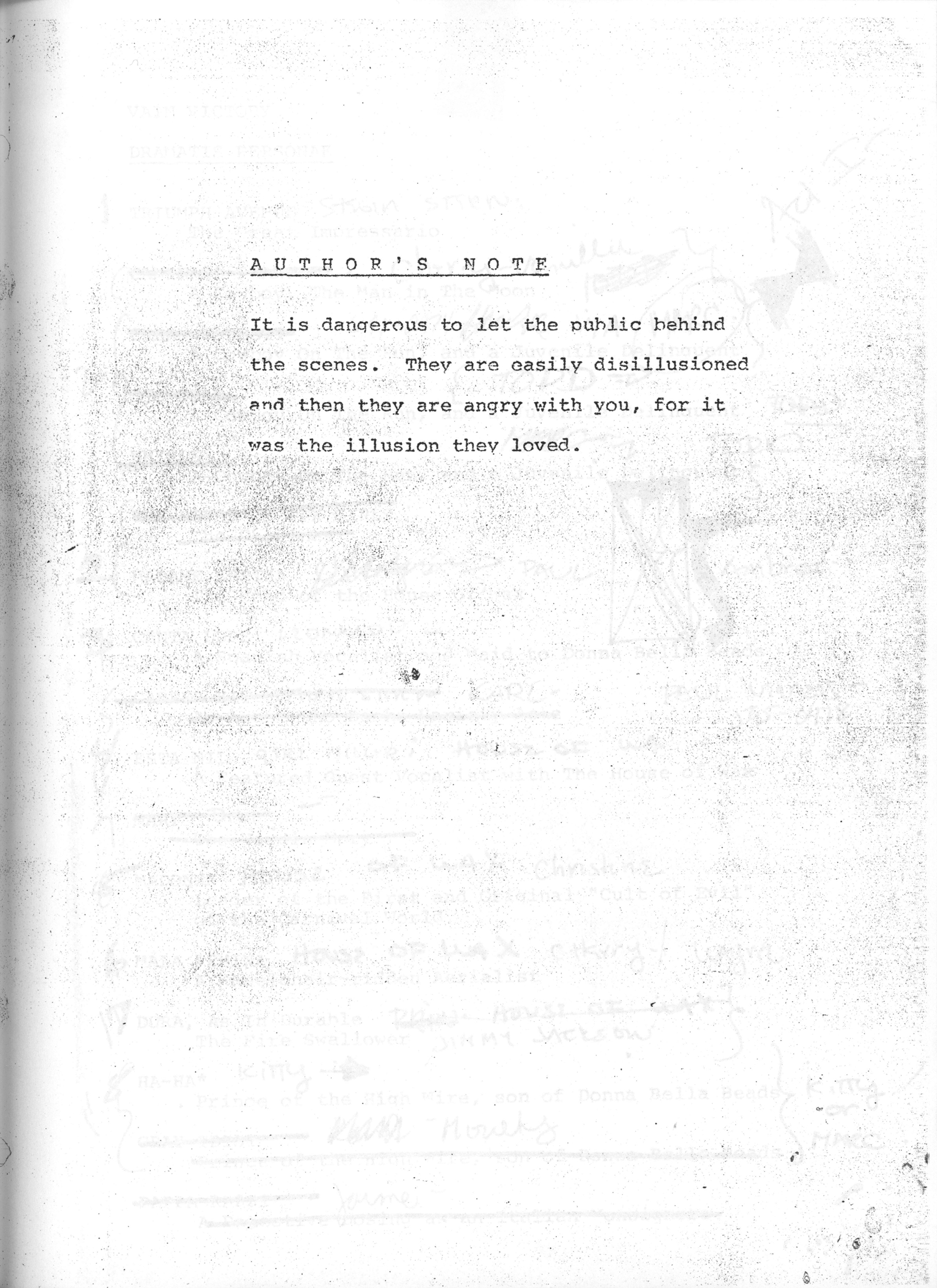
Vain Victory © 1985. The Estate of Jackie Curtis. Special Thanks Joe Preston.
During the late ’60s and early ’70s, Jackie staged farcical plays like Glamour, Glory and Gold and Heaven Grand in Amber Orbit at a series of struggling downtown theaters that were often raided by police due to their “deviant” performances. These shows helped trans icons like Candy Darling and Holly Woodlawn elicit the attention of Andy Warhol and his collaborator, the director Paul Morrissey, but it was Vain Victory: The Vicissitudes of the Damned, a topsy-turvy script about a sinking ship, written by Jackie in a speed-fueled haze in 1970, which best embodied the brazen creativity behind her work.
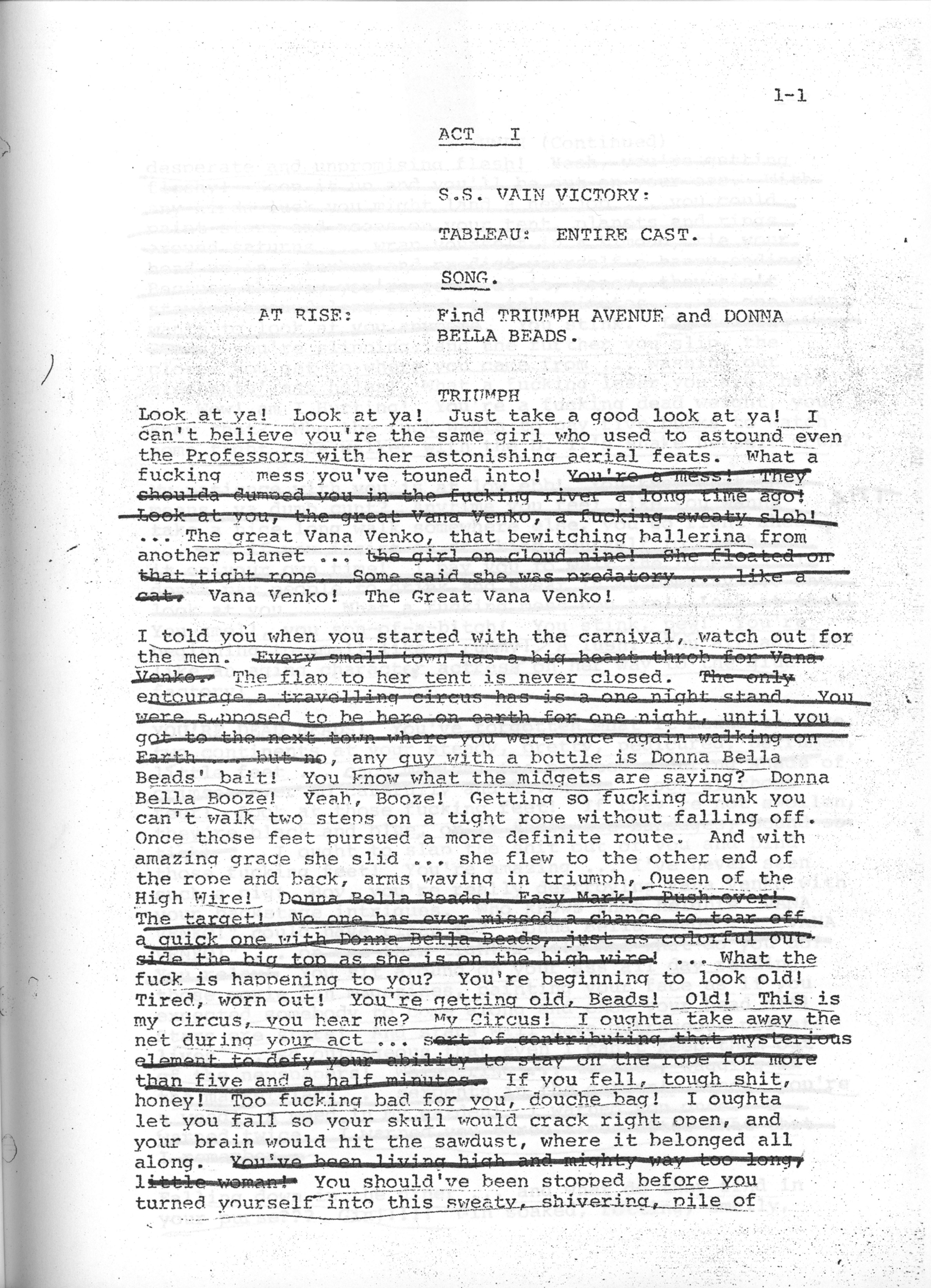
Rehearsals for the initial run of Vain Victory took place over the course of a year and Jackie was determined to make it a success. While Factory Superstars Ondine and Candy Darling worked on their characters, Curtis ran false ads in The Village Voice claiming that Lou Reed wrote the soundtrack and Taylor Mead was the star. This was not a scam, but part of a fantasy fundamental to the survival of artists like Jackie and Candy, whose day-to-day lives were much more complex than the airs they put on.
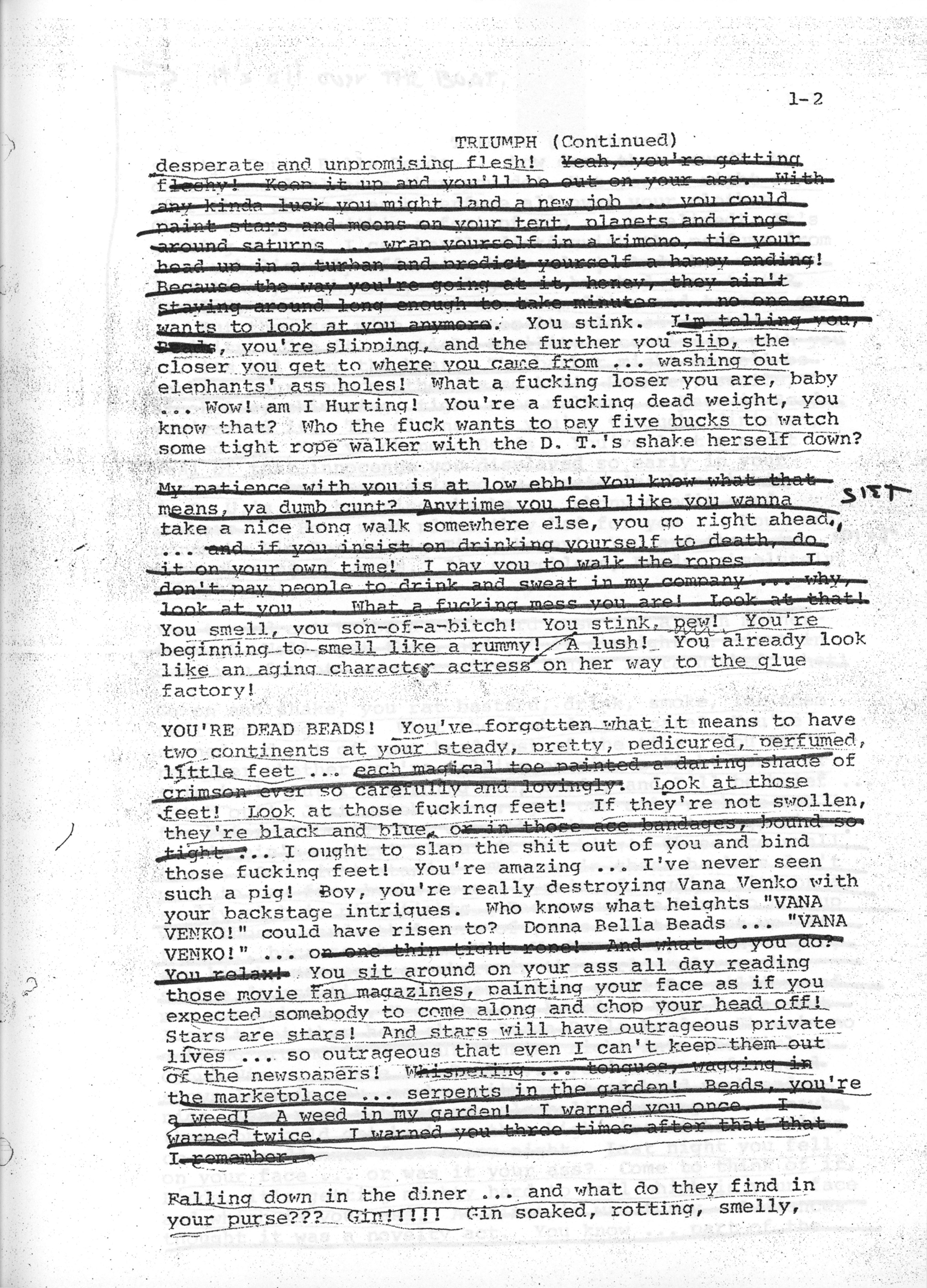
Vain Victory opened to a packed house in May 1971, and although Warhol didn’t appear onstage, he did show up to the theater with John Lennon and Yoko Ono, according to Candy Darling biographer Cynthia Carr. Throughout the show’s run, Ondine’s offensive opening monologue (reprinted here) was the only part of the script to make the cut, while the rest of the play featured plotless improvisations described in a New York Times review as “unabashed trash.”
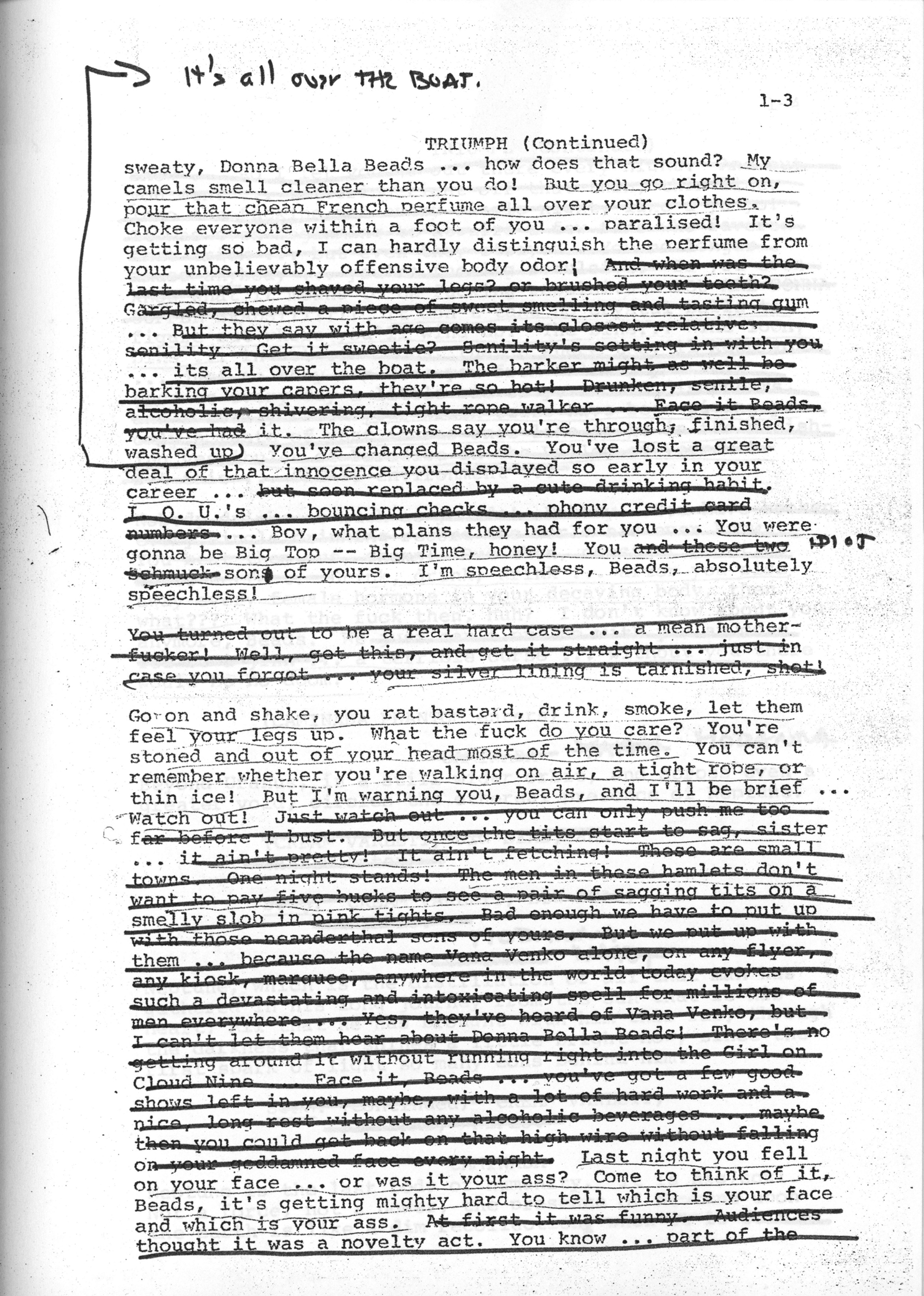
Years later, the term trash would be reclaimed by filmmakers like John Waters, who understood that works of art where trans women and drag queens got to play tragically hilarious renditions of the classic Hollywood stars who inspired them was a treat so transgressive that even today, most of Jackie’s work is too controversial to print in this magazine.

